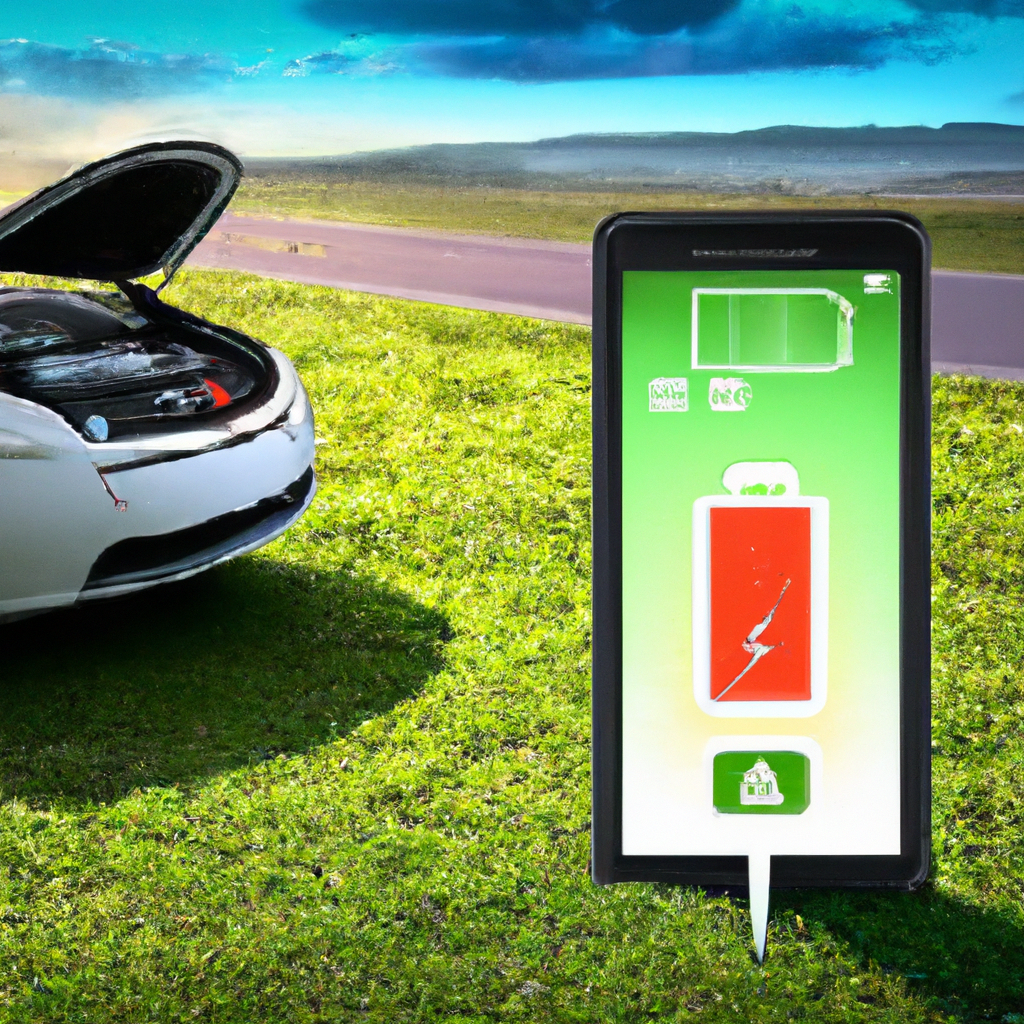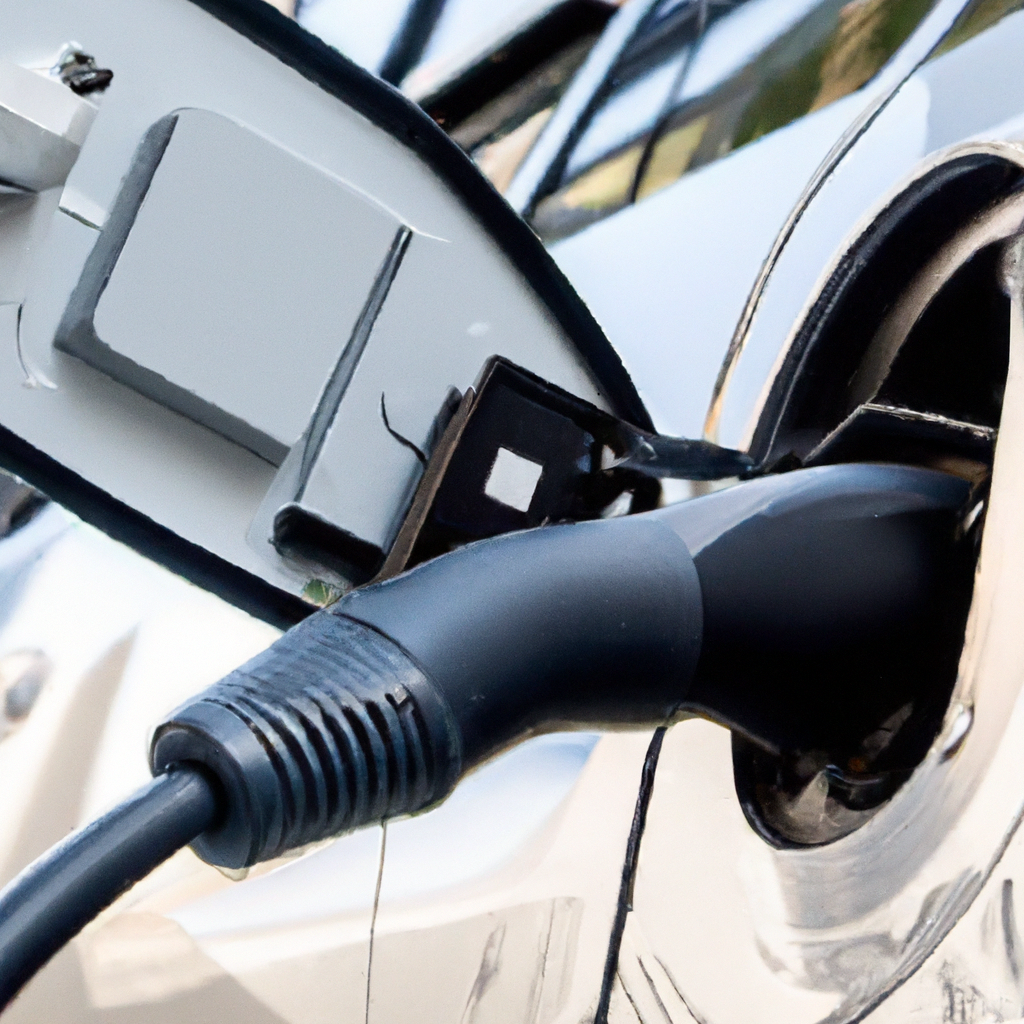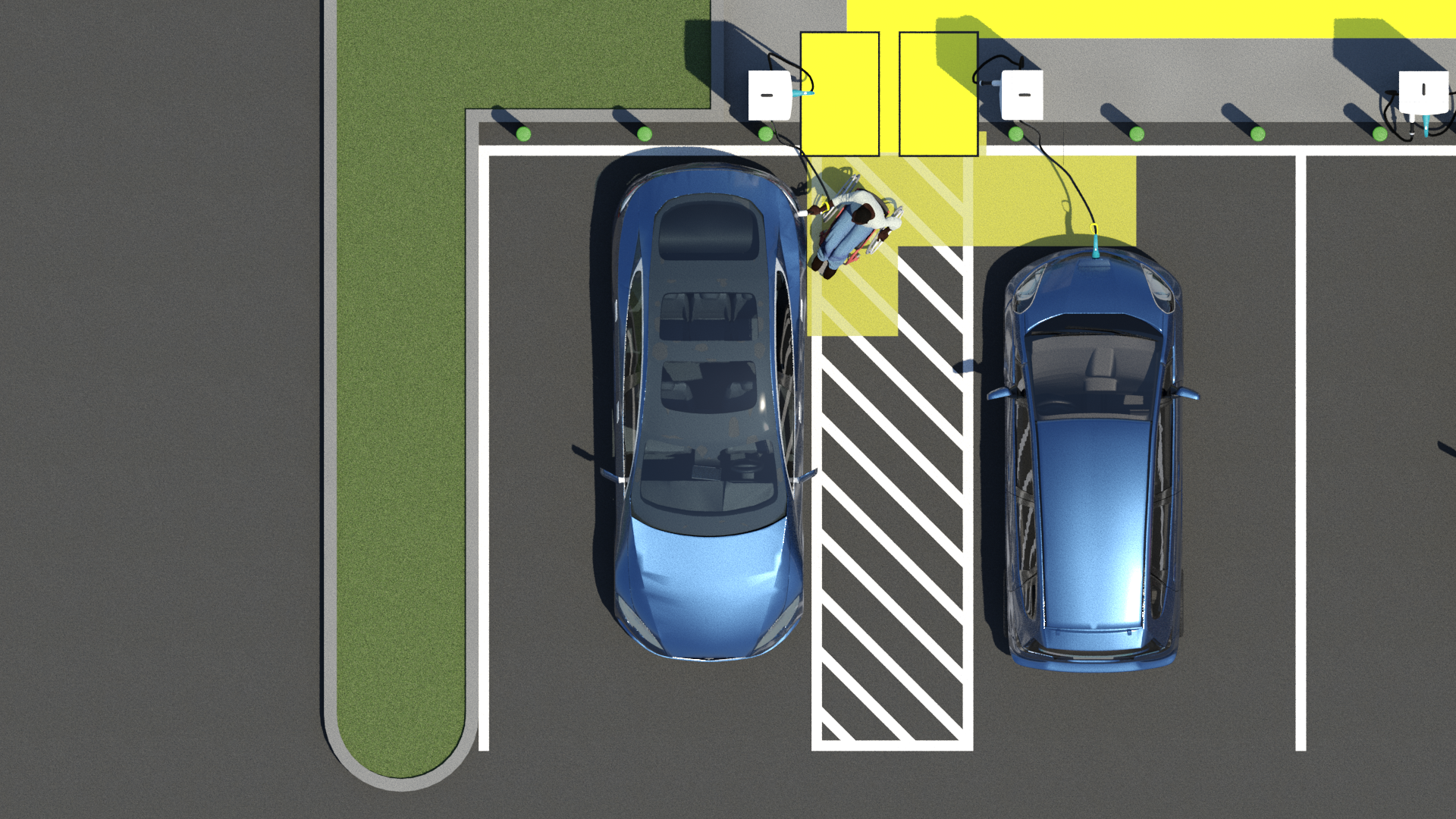What Is The Impact Of Rapid Charging On Battery Life In Malaysia?
October 18, 2023 | by Jacob Kang

If you’re curious about the impact of rapid charging on battery life in Malaysia, you’ve come to the right place. In this article, we’ll explore this fascinating topic and shed light on the potential effects of rapid charging on electric vehicle batteries. Whether you’re a seasoned expert in EV chargers or simply interested in the future of transportation, this article will provide you with valuable insights and analysis. So sit back, relax, and let’s dive into the world of rapid charging and its impact on battery life in Malaysia.
Battery Life and Rapid Charging
Battery life is a crucial aspect when it comes to electric vehicles (EVs), and rapid charging has become a popular charging option for EV owners. In this article, we will explore the impact of rapid charging on battery life in Malaysia, taking into account various factors that can influence battery degradation. We will also discuss the rapid charging infrastructure in Malaysia, battery management practices, and provide tips for maximizing battery life.
Understanding Battery Life in EVs
Before delving into the impact of rapid charging, it is important to understand battery life in EVs. Battery life refers to the capacity of the battery to hold a charge and deliver the required power to run the vehicle. Over time, batteries in electric vehicles undergo degradation, which leads to a reduction in their overall capacity. Several factors can contribute to battery degradation, including temperature, charging frequency, charging speed, and battery chemistry.

What is Rapid Charging?
Rapid charging, also known as fast charging or quick charging, is a charging technique that allows EVs to charge at a significantly faster rate compared to standard or slow charging. Rapid charging stations are equipped with high-powered chargers that can replenish the battery of an EV in a shorter amount of time. This is particularly advantageous for EV owners who are on the go and need to charge their vehicles quickly to continue their journey.
The Potential Impact on Battery Life
Although rapid charging offers convenience and faster charging times, it can have an impact on the overall battery life of an EV. The high charging currents and elevated temperatures during rapid charging can contribute to accelerated battery degradation. It is crucial to understand the various factors that influence battery degradation and take appropriate measures to ensure long-term battery health.

Factors That Influence Battery Degradation
Several factors influence battery degradation in EVs. These factors include temperature, charging frequency, charging speed, and battery chemistry.
Temperature
Temperature plays a significant role in battery degradation, and extreme temperatures can have adverse effects on battery performance and lifespan. High temperatures, such as those experienced in Malaysia’s tropical climate, can accelerate the chemical reactions within the battery, leading to faster degradation. Proper thermal management systems and cooling mechanisms are essential to mitigate the negative impact of temperature on battery health.
Charging Frequency
Charging frequency refers to how often an EV is charged. Frequent charging can contribute to battery degradation, especially if the battery is subjected to high charging currents frequently. It is advisable to avoid unnecessary charging sessions and only charge when necessary to minimize the wear and tear on the battery.
Charging Speed
The charging speed, particularly during rapid charging, can have a significant impact on battery life. Higher charging speeds generally generate more heat, which can accelerate battery degradation. Using moderate charging speeds or selecting the appropriate charging rate can help mitigate the negative effects on battery health.
Battery Chemistry
Battery chemistry plays a crucial role in determining battery life and performance. Different battery chemistries have varying levels of tolerance to high charging currents and temperatures. It is essential to understand the battery chemistry of your EV and consider the potential impact of rapid charging on battery health.
Manufacturer Recommendations
EV manufacturers often provide specific recommendations and guidelines for charging practices to optimize battery life. Following these recommendations is crucial to ensure the longevity of the battery and to avoid any potential warranty issues. It is important to consult the manufacturer’s guidelines and adhere to their recommendations regarding charging speed, frequency, and temperature.
Battery Management Systems
Modern EVs are equipped with sophisticated battery management systems (BMS) that monitor and regulate various parameters of the battery. A well-designed BMS can help optimize charging and discharging processes, as well as mitigate the negative effects of rapid charging. Regularly monitoring the state of the battery through the BMS can provide valuable insights into the battery’s health and allow for early detection of any potential issues.
Rapid Charging Infrastructure in Malaysia
Now that we have discussed the impact of rapid charging on battery life, let’s explore the current rapid charging infrastructure in Malaysia.
Overview of EV Market in Malaysia
The EV market in Malaysia is steadily growing, with more drivers switching to electric vehicles for their transportation needs. In recent years, the Malaysian government has introduced various incentives and initiatives to encourage the adoption of EVs, including the development of a comprehensive rapid charging infrastructure.
Rapid Charging Network in Malaysia
Malaysia has witnessed a rapid expansion of its rapid charging network, with numerous charging stations strategically placed across the country. These charging stations are equipped with high-powered chargers capable of delivering fast charging speeds.
Charging Station Locations
Charging stations in Malaysia are located in various locations, including shopping centers, office complexes, and public parking areas. This accessibility ensures that EV owners have convenient and easy access to charging infrastructure.
Charging Speeds
Rapid charging stations in Malaysia offer varying charging speeds, depending on the charger’s capabilities and the EV’s compatibility. Fast charging speeds allow for quick top-ups during a journey or enable EV owners to charge their vehicles during short stops.
Availability of Rapid Charging Stations
The availability of rapid charging stations in Malaysia is increasing steadily, with more charging stations being added regularly. This expansion enhances the convenience and accessibility of rapid charging for EV owners across the country.
Plans for Future Expansion
The Malaysian government has announced plans for further expansion of the rapid charging infrastructure. These plans include increasing the number of charging stations and further improving the charging speeds to cater to the growing demand for EVs in the country.

Battery Management Practices
To ensure long battery life and mitigate the potential impact of rapid charging on battery health, it is essential to follow appropriate battery management practices.
Optimal Charging Techniques
Using optimal charging techniques, such as charging to moderate levels and avoiding deep discharges, can help prolong battery life. It is generally recommended to maintain a state of charge between 20% and 80% to optimize battery health.
Avoiding Rapid Charging When Not Necessary
Although rapid charging offers convenience, it is advisable to avoid frequent rapid charging when not necessary. Utilizing slower charging methods, such as overnight charging at home, can be less stressful on the battery and help prolong its lifespan.
Using Moderate Charging Speeds
When rapid charging is required, opting for moderate charging speeds can help minimize the impact on battery health. Higher charging speeds generate more heat, which can accelerate battery degradation. Selecting a lower charging rate can help mitigate this effect.
Avoiding Deep Discharges
Deep discharges, where the battery is drained to very low levels, can impact battery longevity. Avoiding deep discharges and ensuring the battery is regularly charged can help maintain its health and capacity.
Monitoring Battery Health
Regularly monitoring the battery’s health, either through the EV’s onboard systems or a dedicated battery monitoring device, can provide valuable insights into its performance and condition. This allows for early detection of any potential issues and enables proactive measures to be taken.
Effects of Rapid Charging on Battery Health
Now, let’s delve into the specific effects of rapid charging on battery health in Malaysian conditions.
Temperature Rise during Charging
Rapid charging can generate a significant amount of heat, especially when charging currents are high. In Malaysia’s tropical climate, the already elevated ambient temperature can exacerbate this effect. The increased temperature during rapid charging can accelerate battery degradation.
Increased Internal Resistance
Rapid charging can lead to an increase in internal resistance within the battery. The higher the internal resistance, the greater the energy losses and reduced overall battery capacity. Monitoring internal resistance can provide insights into the battery’s health and facilitate appropriate maintenance measures.
Accelerated Lithium Plating
Lithium plating is a phenomenon that can occur during rapid charging when the lithium ions are not properly and evenly distributed across the battery’s electrode surfaces. This can lead to the formation of metallic lithium, which reduces battery capacity and can cause safety concerns. Avoiding high charging currents and utilizing appropriate charging techniques can help minimize the risk of lithium plating.
Impact on Depth of Discharge
Rapid charging tends to focus on replenishing the battery as quickly as possible, which often results in charging to higher state-of-charge levels. While this is convenient, repeatedly charging to high levels can have a negative impact on the overall depth of discharge the battery experiences over time. Shallow cycling, where the battery is not fully discharged, is generally less stressful on the battery and can help preserve its capacity.
Reduced Battery Capacity over Time
The cumulative effect of rapid charging on battery health can lead to reduced overall battery capacity over time. As the battery degrades, it will be able to store and deliver less energy, impacting the vehicle’s driving range. Monitoring the battery’s capacity regularly can help gauge the rate of degradation and inform necessary maintenance actions.

Ensuring Long Battery Life in Rapid Charging
To ensure long battery life while utilizing rapid charging, certain measures can be taken to optimize battery health.
Choosing the Right Charging Infrastructure
When selecting a charging infrastructure, it is important to consider factors such as charging speed, compatibility with your EV, and the availability of cooling systems. Choosing a reliable and well-maintained charging network can help minimize the impact of rapid charging on battery life.
Battery Cooling Systems
Some charging stations in Malaysia are equipped with battery cooling systems that help regulate the temperature of the battery during rapid charging. These cooling systems can help mitigate the negative impact of heat on battery health and ensure safer and more efficient charging.
Battery Thermal Management
Maintaining appropriate battery temperature through battery thermal management systems is crucial for optimal battery performance and longevity. These systems can actively heat or cool the battery to ensure it operates within the optimal temperature range, minimizing thermal stress and enhancing overall battery health.
Using Smart Charging Apps
Smart charging apps allow EV owners to monitor and control their charging sessions remotely. These apps often provide valuable information on charging speeds, state of charge, and battery health. Utilizing such apps can help optimize charging practices and ensure long battery life.
Following Manufacturer Guidelines
Each EV manufacturer provides specific guidelines and recommendations for charging and battery management. Adhering to these guidelines is crucial to maximize battery life and avoid any potential warranty issues. Familiarize yourself with the manufacturer’s recommendations and incorporate them into your charging habits.
Comparison with Slow Charging
To provide a comprehensive understanding of the impact of rapid charging on battery life, it is important to compare it with slow charging.
Advantages of Slow Charging
Slow charging, also known as standard charging, generally operates at a lower charging speed compared to rapid charging. While slow charging takes longer to replenish the battery, it is generally less stressful on the battery and poses a lower risk of accelerated degradation. Slow charging can be beneficial for long-term battery health, especially when the charging time is not a limiting factor.
Effect on Battery Life
Compared to rapid charging, slow charging poses less risk of accelerated battery degradation. The lower charging speeds generate less heat and put less stress on the battery, contributing to better overall battery life. Slow charging can be particularly useful for EV owners who have the luxury of longer charging times and want to optimize battery health.
Charging Time Considerations
The trade-off between rapid charging and slow charging lies primarily in the charging time. Rapid charging allows for shorter charging times, making it ideal for EV owners who need to charge quickly and continue their journey. Slow charging, on the other hand, requires longer charging times but can be advantageous for preserving battery health.

Experiences and Studies in Malaysia
To gain insights into the real-world impact of rapid charging on battery life in Malaysia, we can refer to experiences and studies conducted in the country.
Real-World Battery Performance in Malaysia
Various EV owners in Malaysia have reported their experiences with rapid charging and battery life. These firsthand accounts provide valuable information on the actual impact of rapid charging in Malaysian conditions. While individual experiences may vary, they offer insights into the overall battery performance and the measures taken by EV owners to ensure long battery life.
Case Studies on Rapid Charging Effects
Numerous case studies have been conducted to evaluate the impact of rapid charging on battery health in Malaysia. These studies often involve monitoring the charging behavior and battery performance of a sample of EV owners. By analyzing the data, researchers can draw conclusions regarding the effects of rapid charging on battery life.
Research on Battery Degradation in Malaysian Climate
Researchers in Malaysia have been actively studying battery degradation in the local climate. The hot and humid conditions in Malaysia pose unique challenges to EV batteries, and understanding the specific impact of rapid charging in this climate is crucial. These studies provide valuable insights into the measures that can be taken to mitigate battery degradation and optimize battery life.
Other Factors Influencing Battery Life
Apart from rapid charging, several other factors can influence battery life in EVs.
Driving Habits and Patterns
Driving habits and patterns can affect battery life in EVs. Aggressive driving, frequent acceleration and braking, and driving at high speeds can increase energy consumption and put additional stress on the battery. Maintaining a consistent driving style and avoiding unnecessary energy consumption can help preserve battery capacity.
Battery Age
Battery age is an important factor in battery degradation. Over time, batteries naturally undergo chemical reactions that result in degradation. As the battery ages, its capacity reduces, and its ability to hold a charge decreases. Monitoring the battery’s age and planning for eventual replacement can help ensure optimal battery performance.
Quality of Maintenance and Service
Proper maintenance and servicing of the EV and its battery can contribute to longer battery life. Regular maintenance checks, including battery inspections and firmware updates, can help identify and address any issues early on. Adequate servicing from certified professionals ensures that the battery is operating at its best.
Environmental Conditions
The overall environmental conditions, such as temperature, humidity, and air quality, can impact battery health. Extreme temperatures, high humidity, and exposure to pollutants can accelerate battery degradation. It is important to consider these environmental factors and take appropriate measures, such as parking in shaded areas and avoiding exposure to harsh conditions.
Battery Warranty and Replacement
Understanding the battery warranty of your EV and the available options for battery replacement is important. Battery warranties often come with specific terms and conditions that outline the expected battery life and guidelines for maintenance. Being aware of the warranty coverage and potential options for replacement can help plan for the future of the battery.
Tips for Maximizing Battery Life
To maximize the battery life of your EV and mitigate the potential impact of rapid charging, consider the following tips:
Preventing Extreme Temperatures
Avoid exposing your EV to extreme temperatures whenever possible. Parking in shaded areas or using covered parking can help regulate the temperature inside the battery. Extreme heat or cold can have detrimental effects on battery health, so taking precautions to minimize exposure is vital.
Avoiding Frequent Rapid Charging
While rapid charging is convenient, it is advisable to avoid unnecessary frequent rapid charging. Utilize slower charging methods whenever possible to minimize the stress on the battery and preserve its longevity. Plan charging sessions strategically to avoid relying solely on rapid charging.
Maintaining a Moderate State of Charge
Keeping the state of charge within a moderate range can help optimize battery health. Maintaining a charge level between 20% and 80% is generally recommended to avoid extreme high or low states of charge. This moderate state of charge can help prolong battery life and minimize degradation.
Store Your Vehicle Properly during Inactivity
If you plan on leaving your EV inactive for an extended period, take appropriate measures to store it properly. Ensure the battery is sufficiently charged before storage to avoid deep discharges. Store the vehicle in a cool, dry place to minimize environmental stress on the battery.
Regularly Assessing Battery Health
Regularly monitoring and assessing the health of your EV’s battery can provide valuable insights into its performance and condition. Utilize the onboard battery management system or dedicated battery monitoring devices to gauge the battery’s health and detect any potential issues early on. Regular assessments allow for proactive maintenance and optimization of battery life.
Conclusion
Rapid charging has become an integral part of the EV charging infrastructure in Malaysia. While it offers convenience and faster charging times, it is important to understand the potential impact of rapid charging on battery life. Factors such as temperature, charging speed, and charging frequency can influence battery degradation. By following appropriate battery management practices, utilizing reliable charging infrastructure, and adhering to manufacturer recommendations, EV owners can ensure long battery life even with rapid charging. Continuous research, case studies, and experiences in Malaysia contribute to a better understanding of battery degradation and help optimize battery health for the growing community of EV owners in the country.
RELATED POSTS
View all


